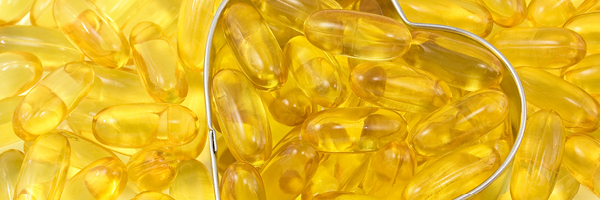


Sign-up for {N}power to get exclusive discounts, newsletters, members-only features, and more!


It’s natural to want to take care of the people you love, and let’s face it—for those of us with loved ones who are, shall we say, stubborn about taking care of themselves, it might be downright imperative. After all, we want our loved ones to live long healthy lives as much for their good as our own. So as Valentine’s Day nears, it seems particularly appropriate to focus on taking care of the hearts you love with the heart-loving nutrient Coenzyme Q10.
At first thought, Coenzyme Q10, or CoQ10 as it is commonly called, might not seem like such a romantic gift to give your Valentine, but because CoQ10 supports heart health (and so much more) in so many ways, it’s really like saying, “I love you so much I want you to be healthy with me for as long as possible.” And that’spretty romantic and certainly a much more effective means of getting them there than a box of chocolates.
CoQ10 is a vitamin-like compound that is essential in several key steps of energy production within the cells. Thus, it is most abundant in organs that require a lot of energy, like the heart. When the heart is supplied with adequate energy, it can pump blood throughout the entire body efficiently. Without energy, not only does actual pumping efficiency go down, but cells aren’t able to repair and maintain themselves properly either. CoQ10 also supports healthy blood vessel function, thus helping to maintain healthy blood pressure.[fn value=1][/fn] [fn value=2][/fn] Although extremely important, energy production is just the tip of the iceberg for CoQ10.
 During the process of energy production, our bodies require not only numerous nutrients, and fuel in the form of carbohydrates and fats, but also oxygen. While this process allows us to create the energy we need, it is not 100% efficient, and some of the oxygen used is incompletely reduced and instead turned into an unstable reactive oxygen species, a.k.a. a free radical. Free radicals aren’t all bad; after all, our immune system uses some as defense weapons. But when there is an overabundance of free radicals or the body lacks the necessary compounds to protect itself from these unstable molecules, cellular damage can occur.
During the process of energy production, our bodies require not only numerous nutrients, and fuel in the form of carbohydrates and fats, but also oxygen. While this process allows us to create the energy we need, it is not 100% efficient, and some of the oxygen used is incompletely reduced and instead turned into an unstable reactive oxygen species, a.k.a. a free radical. Free radicals aren’t all bad; after all, our immune system uses some as defense weapons. But when there is an overabundance of free radicals or the body lacks the necessary compounds to protect itself from these unstable molecules, cellular damage can occur.
CoQ10 acts as a potent free radical scavenger to protect the cell membranes of the very cells it is working to produce energy in. It also helps to protect lipoproteins, the protein rafts that transport fats through the watery bloodstream, with a particular affinity for low-density lipoproteins (more commonly referred to as LDL). Healthy, unoxidized LDL particles help maintain healthy blood vessels, which supports optimal cardiovascular health.[fn value=3][/fn] [fn value=4][/fn] [fn value=5][/fn] In addition to helping to protect LDL, CoQ10 also helps to regenerate vitamin E, another potent free radical scavenger that supports healthy LDL, so we get more benefit from the vitamin E that is available. The free radical scavenging role of CoQ10 is incredibly protective to the heart and cardiovascular system, but the benefits don’t end there.
While much of the research on CoQ10 has focused on the cardiovascular system, it may also turn out to have health promoting effects throughout the whole body. For instance, CoQ10, in its energy-producing role, appears to support physical performance and improve feelings of fatigue.[fn value=6][/fn] [fn value=7][/fn] In its free radical scavenging role, it may help to keep brain cell membranes healthy, which supports mental function as we age.[fn value=8][/fn] [fn value=9][/fn] [fn value=10][/fn]
Although CoQ10 is found in a wide variety of foods, the average diet supplies very little on a daily basis.[fn value=11][/fn] And although our bodies can produce it, natural production begins to decline after age 40, making CoQ10 supplementation a good idea. For more details on choosing and using the right CoQ10 supplement for your or your loved one’s needs, check out one of these great articles here or here.
CoQ10 helps promote optimal heart function, maintain healthy blood pressure, energy production and even helps to protect our brains, which makes ensuring that adequate amounts of this versatile nutrient are available is a great way to help support the health and longevity of those we love, not to mention ourselves. So this Valentine’s Day, show your love in a truly meaningful way, by giving the gift of good health, in a bottle of CoQ10.



Sign-up for {N}power to get exclusive discounts, newsletters, members-only features, and more!